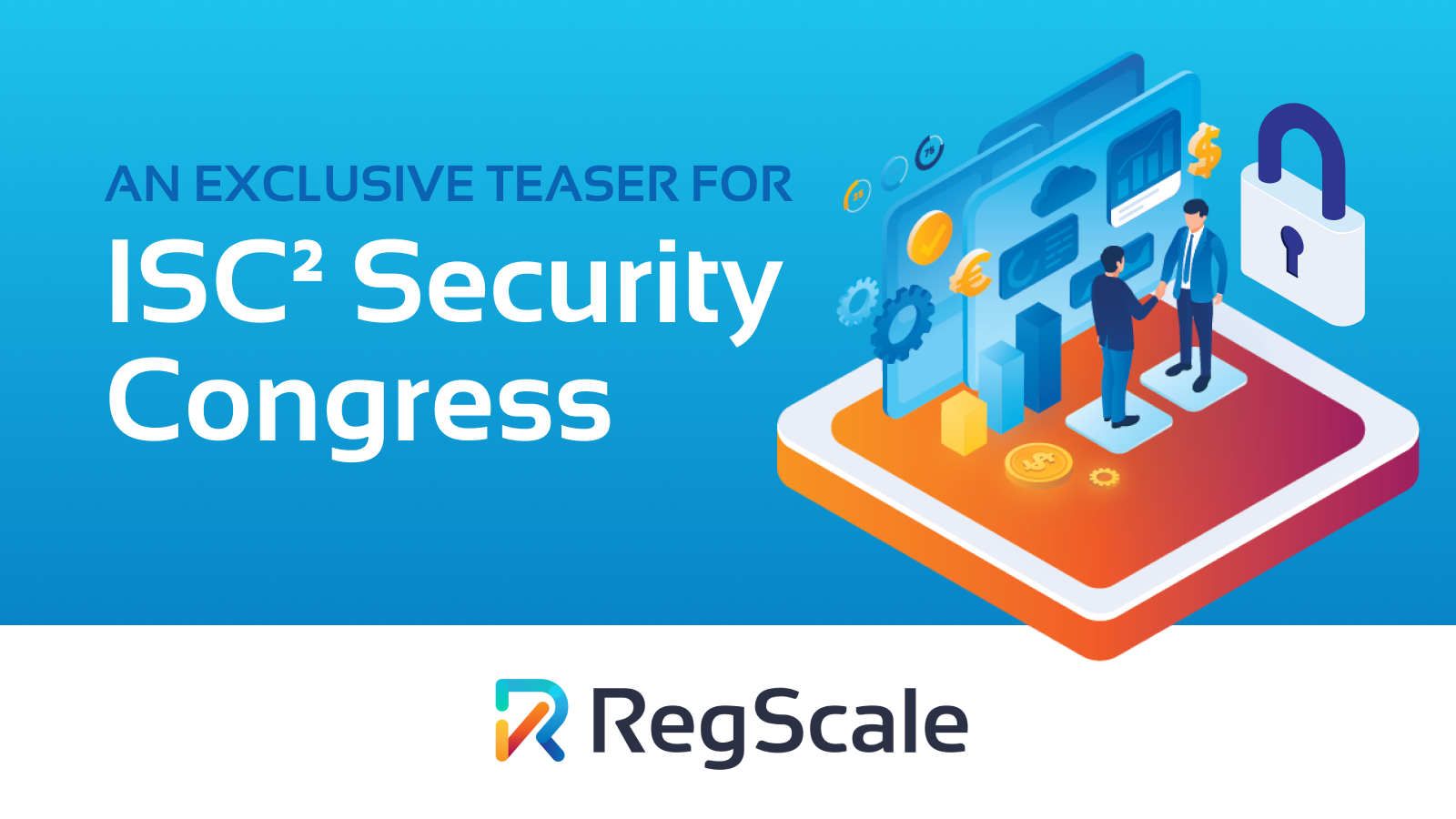
Excitement is building for ISC2’s Security Congress in Nashville, TN, this October, where industry leaders will converge to discuss vital topics shaping the cybersecurity landscape. In the spirit of this year’s theme, “Lead with Confidence”, RegScale’s,” very own CISO, Larry Whiteside Jr., is set to present invaluable insights on overcoming Imposter Syndrome and crafting a powerful personal brand. Following up on the success of last year’s session in Vegas, this year promises an even deeper exploration into the realm of Imposter Syndrome.
Last year’s session on Imposter Syndrome at ISC2 Security Congress in Vegas sparked a dialogue that continues to resonate within the cybersecurity community. For those who might have missed it or are eager for a refresher, Larry’s impactful talk from last year can be revisited here. Building on this, the session at this year’s event in Nashville is poised to take the conversation further, delving into the depths of Imposter Syndrome and offering practical guidance on navigating this common yet often misunderstood phenomenon.
But that’s not all. At Security Congress, Larry will also guide attendees through the art of crafting a personal brand tailored for success in the cybersecurity field. Your personal brand isn’t just a label—it’s an identity that can open doors, connect you with communities, and propel your career forward. Larry will share strategies to ensure your personal brand remains authentic and influential, emphasizing that in cybersecurity, relationships and genuine connections are the true currency.
RegScale is also thrilled to announce that our Co-Founder and CEO, Anil Karmel will also take the stage at Security Congress to discuss a new discipline called RegOps and Modern GRC Pipeline.
Come join us for an exclusive meet and greet with our speakers.
Imposter Syndrome 2.0 – You Are Not Alone
Imposter Syndrome, defined as the persistent ability to believe one’s success is deserved or has been legitimately achieved, affects more people than you think and not just diverse people new to the cybersecurity industry. Following on from last year’s popular session, we’ll delve back into the topic of Imposter Syndrome by defining, recognizing, and working through the feelings that come with it and dispelling the myths about who experiences it. You’ll hear first-hand experience of Imposter Syndrome and leave with practical advice on how to recognize and address those uncomfortable feelings. The goal of this presentation is to help people understand that they are not alone and how to cope with this very misunderstood phenomenon. There is often a perception that Imposter Syndrome is either not real or is something that people only feel early in a person’s career journey. The reality is that even some of the most successful people in the world have felt and sometimes still feel Imposter Syndrome. Additionally, it’s a real thing that should be identified and addressed. There is no medical treatment because it is not a medical condition. This makes it even more important to be recognized and dealt with because it can possibly lead to mental health issues such as anxiety and depression.
Brand Yourself for Success in Your Cybersecurity Career
Learn how to build and manage a strong personal brand that helps you represent your true self while advancing your cybersecurity career. We’ll discuss how to stay relevant, authentic and effective in your personal branding efforts, ultimately helping you to achieve your professional goals. Get new strategies to showcase your personal brand to your network. You’ll learn how to effectively communicate your personal brand through various channels, and how to leverage your network to advance your career. The importance of your personal brand is often overlooked. People often think that if they do their work, they will be rewarded for it. And while that may be true, relationships matter more than anything because people connect with people. And connecting with people comes with a number of things that enable you to move in circles and communities that give you access to things the average person may not have access to. On the topic of community, your brand has a direct impact on the communities that you begin being accepted into and have an opportunity to interact with. Add to the fact that we now live in a digital world where people are making decisions about who they do and don’t want to engage with without ever meeting them in person. This means building your personal brand matters even more and it must span both the physical and logical worlds. This doesn’t mean you need to be a social media influencer or post everything you can all the time. Its does mean that you must be genuine and come across in a way that connects with the people you hope to engage with. If you choose to be any type of speaker or public-facing figure, this matters a thousand times more. The field of cybersecurity is less about technology and more about people. There are tons of cybersecurity technologies that you can purchase, however, it’s the people and communities that you are connected to that will be who help you solve your biggest problems. That only happens if you build a brand that resonates and connects, enabling you to have a community of people with whom you can come together.
Ready to get started?
Choose the path that is right for you!
Skip the line
My organization doesn’t have GRC tools yet and I am ready to start automating my compliance with continuous monitoring pipelines now.
Supercharge
My organization already has legacy compliance software, but I want to automate many of the manual processes that feed it.